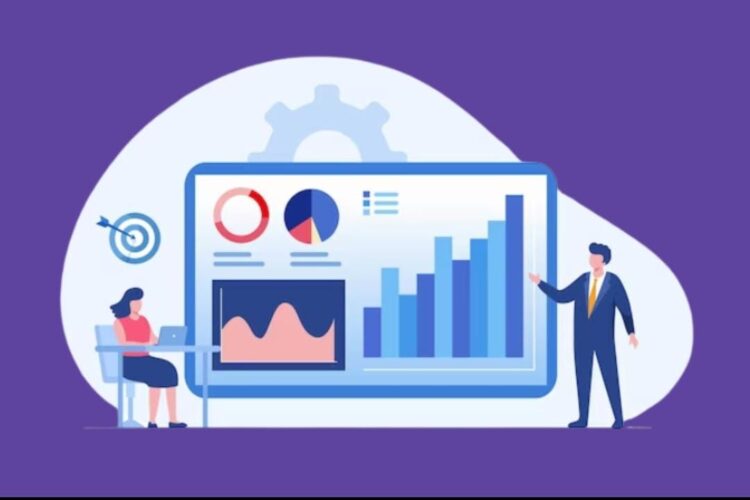The age-old debate in business analysis is which is more important: practical experience or formal education? A Business Analyst’s job path requires carefully balancing formal education and real-world experience. Business Analyst Qualifications constitute a significant factor in determining how one’s professional story is told. Achieving the ideal mix between academic comprehension and practical application is crucial.
In this blog, we explore the age-old argument between education and experience, illuminating what is really important for those hoping to succeed as a Business Analyst.
Table of Contents
- The Significance of Business Analyst Qualifications
- Academic Advantage: Business Analyst Degrees
- In-Depth Knowledge Acquisition
- Industry-Relevant Curriculum
- Practical Prowess: Business Analyst Experience
- Learning on the Job
- Adaptability and Agility
- Striking a Harmonious Balance
- Nurturing the Analytical Mindset: Beyond Qualifications and Experience
- Continuous Learning
- Soft Skills Mastery
- The Hybrid Approach: Maximizing Potential
- Blurring the Lines
- Building Bridges, Not Walls
- Conclusion
The Significance of Business Analyst Qualifications
Choosing whether to pursue formal schooling or acquire experience via practical exposure is frequently the first essential step in starting a career as a Business Analyst. A solid educational background, embodied in the Business Analyst qualifications, provides the framework for thorough knowledge acquisition. Taking specialised courses provides prospective analysts with the analytical skills and theoretical frameworks needed to break down difficult business problems. These credentials—which may range from business analysis degrees to certifications in pertinent methodologies—act as the symbolic compass that leads analysts through the complexities of their work.
The Academic Advantage: Business Analyst Degrees
In-Depth Knowledge Acquisition
Selecting the academic path and earning a degree in business analysis offers an organised and deep understanding of the guiding concepts of the discipline. To provide a thorough understanding of the complex function of the analyst, courses often cover a wide range of subjects, including data analysis, requirements collection, and project management.
Industry-Relevant Curriculum
Analyst for Business Formal education-based qualifications are made to conform to industry norms and new developments. A degree program usually incorporates case studies, practical projects, and industry professional connections to create an atmosphere where theoretical knowledge meets real-world application effortlessly.
The Practical Prowess: Business Analyst Experience
Learning on the Job
Conversely, practical experience has an invaluable value. There is no comparison to the real-world experience that comes from taking on actual business difficulties. Academic credentials set the stage, but daily exposure to the subtleties of the commercial world sharpens the abilities necessary for success.
Adaptability and Agility
Because business settings are dynamic, the capacity for swift adaptation is highly valued. Experience in the real world helps people become more flexible, which allows Business Analysts to skilfully negotiate the always-changing terrain of stakeholder expectations, company needs, and technology breakthroughs.
Striking a Harmonious Balance
There is more to the perfect Business Analyst than just a degree or expertise. Instead, a well-balanced combination of the two produces a professional who is ready to handle the wide range of responsibilities of the position. When Business Analysts have the appropriate training and real-world experience, they can easily go from theory to practice and become a dynamic force.
Nurturing the Analytical Mindset: Beyond Qualifications and Experience
Continuous Learning
In business analysis, a degree or years of experience are not enough to start a career. It is crucial to commit to lifelong learning. Maintaining a current understanding of technology, changing processes, and industry trends guarantees a Business Analyst’s value in any organisational setting.
Soft Skills Mastery
A competent Business Analyst is more than just someone with strong analytical skills. Stakeholder management, problem-solving, and communication abilities are all equally important. Technical analysis and company strategy are separated by the capacity to convert complex data into valuable insights and effectively convey them.
The Hybrid Approach: Maximising Potential
Blurring the Lines
A hybrid method is becoming a significant paradigm in business analysis. This method helps analysts to smoothly combine their academic knowledge with practical experience. Using this hybrid paradigm, Business Analysts may take advantage of the advantages inherent in both domains, building upon the theoretical underpinnings obtained via formal education and supplementing them with the real-world knowledge gained from experience.
Building Bridges, Not Walls
The hybrid method aims to create connections rather than barriers between formal education and real-world experience. It imagines a world where Business Analysts combine knowledge and action, moving easily between the boardroom and the classroom. This dynamic synergy improves an individual’s performance and adds to the organisation’s overall effectiveness of business analysis.
Conclusion
The argument in business analysis between experience and degree is less binary and more synergistic. The cornerstone is provided by Business Analyst qualifications, which provide an organised comprehension, while practical experience refines abilities. Combining the two creates a Business Analyst who can successfully negotiate the complex maze of contemporary company issues. Rather than seeing this as a binary decision, aspiring analysts can see it as an opportunity to adopt a comprehensive strategy for success. Flexibility, ongoing education, and a diverse skill set are essential in business analysis.




0 Comments